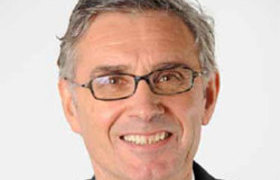What it takes to make it
01 December 2014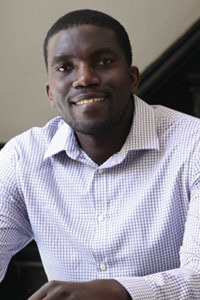
There's no doubt that research in the health sciences is incredibly important, but degrees in this field are known for being difficult – they're incredibly competitive, not to mention time-intensive. What keeps students motivated when the going gets tough?
My goal is to reduce the disease burden in Africa through science, by contributing to unravelling the mysteries that surround poorly understood diseases and finding therapies using computational means. My first challenge was blending two fields that are traditionally considered divergent [computer science and biology]. Since my honours degree was entirely in computer science, I found it a little challenging grasping some biological concepts that I needed for my studies. I also spend a lot of time away from my family and friends back in Kenya, due to research demands and financial constraints. On the other hand, I have received a lot of support from the Faculty of Health Sciences not only in terms of funding for my studies but also the relationships that I have developed specifically with my colleagues at the Division of Computational Biology – for which I am very grateful.
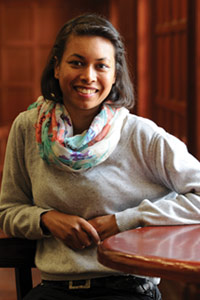
Zulfah Albertyn
PhD in the School of Public Health and Family Medicine
My research area is maternal health, including health systems strengthening in primary healthcare and sexual rights. I chose this research area as I'm interested in the health needs of women and how socioeconomic factors such as education impact the quality and access of reproductive health services. I'm interested in determining the role the health system plays in ensuring that women receive quality reproductive services at the primary healthcare level.
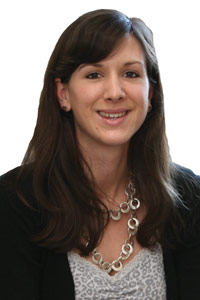
Tamara Stelma
Master's in Medical Biochemistry
I'd like to be able to make a contribution that is relevant in the clinical setting, such as earlier cancer diagnosis through the identification of suitable biomarkers, or the development of a drug that can prolong the life expectancy and quality of life of cancer patients. I am very grateful to have been given the opportunity to keep on studying and do what I love. This has only been made possible by the financial assistance I receive in the form of merit scholarships through the postgraduate funding office.
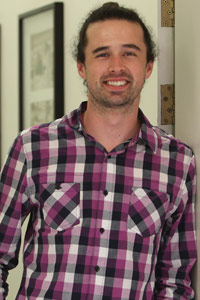
Simon Broadley
PhD in Medical Biochemistry
I want to answer pressing medical questions that affect South Africa (and Africa), and contribute to the knowledge base by solving atomic structures by X-ray crystallography. I am currently trying to clone, express, purify, crystallise and solve the 3D atomic structure of proteins involved in the induced mutagenesis system of Mycobacterium tuberculosis [the bacterium that causes TB].

Horacia Naidoo
PhD in Human Genetics
My field of study is in human genetics – specifically the pharmacogenetics related to breast cancer. There is a predisposition of women in my family to developing breast cancer, and seeing these beautiful, vibrant women reduced to shadows of their former selves motivated me to do something about it. I believe with a personalised medicine approach, we have the best chance of long-term survival.
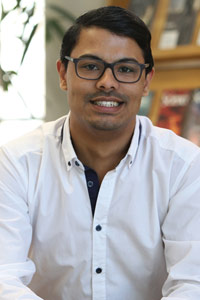
Dylan Barth
PhD in Medicine
Pursuing a PhD can be demanding. It can consume you if you allow it to. Of course this journey will cause some things to take a backseat; however, maintaining a balanced lifestyle is important. I absolutely love running and make a point of putting time aside to exercise. Giving back to the community is also a priority; I am involved in a mentoring programme at an organisation called Ikamva Youth – we aim to equip students from disadvantaged communities with skills and resources to access tertiary education and employment opportunities.
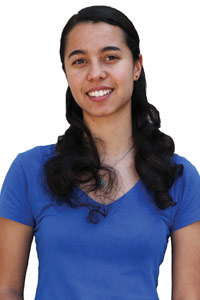
Farah Jawitz
Bachelor of Medicine
I am realising more and more now that medicine has granted me such privileged access to the lives and stories of people with whom I would never previously have engaged. I hope to leave my mark on the healthcare system and to honour the stories of the patients whose lives touch mine.
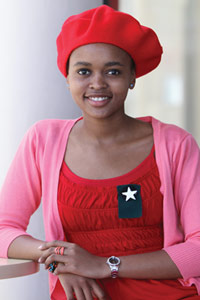
Kamogelo Lebeko
Master's in Human Genetics
My supervisors have helped build me as an individual. I've overcome a lot of my self-doubt and self-limitation because of their leadership and guidance, positive feedback and criticism. I am a more confident and outspoken individual because of it. I was faced with having to deal with my mother's hospitalisation in September last year after a brutal mugging, while I was writing my honours thesis (crime sucks); and they were very understanding in my distress, and helped me cope and submit my thesis on time.
Compiled by Thaheer Mullins. Photos by Michael Hammond.
 This work is licensed under a Creative Commons Attribution-NoDerivatives 4.0 International License.
This work is licensed under a Creative Commons Attribution-NoDerivatives 4.0 International License.
Please view the republishing articles page for more information.









